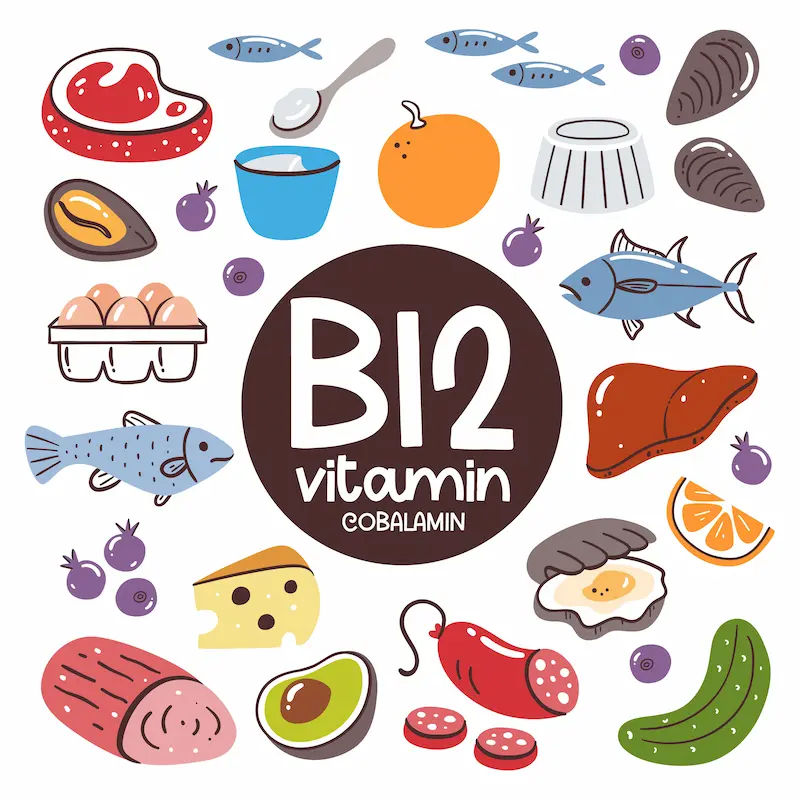5 Heart Attack Signs In Women You Mustn’t Ignore
Learn the five key heart attack signs in women, why symptoms can differ from men, and what to do. Early recognition and action can save lives.


Introduction
Heart disease is the leading cause of death for women, and a heart attack can look very different in women than in men. Many women do not experience the “movie scene” crushing chest pain. Instead, they may feel shortness of breath, unusual fatigue, or discomfort in the back, jaw, or stomach—symptoms that are easy to brush off as stress, indigestion, or a pulled muscle. That is why knowing the early warning signs of a heart attack in women—and acting quickly—can save a life. Minutes matter.
In this guide, we break down the five heart attack signs in women you should never ignore, explain why women’s symptoms can be atypical, and show you exactly what to do if you notice them. You’ll also learn who is most at risk, how heart attacks are diagnosed with ECG and troponin tests, and practical steps to protect your heart. Whether you are reading for yourself or someone you love, this woman-centred overview will help you recognise the signs of a heart attack and respond with confidence.
Why Heart Attacks can Look Different in Women?
Women’s hearts and blood vessels are influenced by hormonal changes across life stages—from menstrual cycles to pregnancy and menopause. Estrogen has protective effects, but as it declines with age, risk rises. Women are more likely to experience ischemia from microvascular disease rather than large-artery blockages alone, producing subtler symptoms than the “classic” crushing chest pain often depicted in men. Some women also have plaque erosion, leading to different heart attack patterns.
These differences contribute to atypical presentations—shortness of breath, nausea, upper back pain, jaw or neck discomfort, or unusual fatigue. Many women attribute these signs to anxiety, ageing, or a busy day and delay care. Women are more likely to present without prominent chest pain and may wait longer before going to the hospital, leading to worse outcomes. The cost of delay is high. In a heart attack, every minute counts—earlier treatment restores blood flow and saves heart muscle. If something feels wrong, especially with risk factors like diabetes or high blood pressure, treat it as cardiac until proven otherwise. Call your local emergency number and do not drive yourself.
Consult Top Specialists
The Five Heart Attack Signs Women Shouldn’t Ignore
Here's what to look out for:
• Chest discomfort: Pressure, tightness, squeezing, fullness, or a band across the chest. It may be mild, come and go, or feel like indigestion.
• Shortness of breath: Breathlessness at rest or with minimal exertion, even without chest pain.
• Pain in the jaw, neck, back, or shoulders: Discomfort can spread to one or both arms, the upper back, or the jaw.
• Nausea, indigestion, or stomach pain: Not just typical heartburn; may include vomiting or a flu-like feeling.
• Unusual fatigue, dizziness, or lightheadedness: Feeling suddenly exhausted, weak, or woozy without a clear reason.
Each of these can be mistaken for something less serious. Notice patterns—new, severe, or persistent symptoms, especially a cluster. If unsure whether it’s indigestion or a heart attack, assume the latter and seek emergency care. Women with diabetes should be especially alert; nerve changes can blunt classic pain and produce silent heart attack symptoms.
Sign 1—Chest Discomfort
Chest pain is still the most common symptom for both men and women, but women often describe it differently. Instead of an intense, localised stab, many women report pressure, tightness, squeezing, fullness, or a heavy band around the chest. It may wax and wane, feel like indigestion, or radiate to the back, shoulders, arms, or jaw. Women might notice it during daily activities and sometimes it is accompanied by shortness of breath or nausea.
If chest discomfort is new, unusual, lasts more than a few minutes, or repeatedly returns, treat it as cardiac. If it intensifies with exertion and eases with rest, this is a red flag for reduced blood flow to the heart. Early emergency evaluation includes an ECG to assess heart electrical activity and blood tests for troponin.
Example: A 52-year-old woman notices dull, spreading pressure across her chest while carrying groceries. She assumes it is heartburn and waits. Thirty minutes later, she is short of breath and sweaty. Emergency services find a non-ST elevation myocardial infarction. Acting promptly limits damage.
Consult Top Specialists
Sign 2—Shortness of Breath
Shortness of breath can be a dominant symptom in women—even without obvious chest pain. Sudden breathlessness walking across the room, inability to finish a sentence, or breathlessness lying flat should be taken seriously. Reduced oxygen supply to heart muscle and fluid backup into the lungs make breathing difficult.
Heart-related breathlessness may come with chest pressure, upper back or jaw discomfort, unusual fatigue, or cold sweats. If coronary risk factors are present, assume heart until proven otherwise. Women are more likely than men to present without classic chest pain and may report shortness of breath, fatigue, and back pain as primary symptoms.
If breathlessness is sudden, unexplained, or severe—or paired with other warning signs—call emergency services. Do not drive yourself. In hospital, expect ECG, pulse oximetry, troponin testing, and possibly a chest X-ray.
Sign 3—Jaw, Neck, Back, or Shoulder Pain
Women often experience referred pain—discomfort felt in areas distant from the heart. Jaw pain, neck tightness, upper back ache, or shoulder pain can be cardiac. Nerves carrying pain signals from the heart share pathways with neck, jaw, and back, causing the brain to “mislabel” the source.
This pain can be dull, achy, or pressure-like. It may worsen with exertion and improve with rest, or appear at rest, sometimes with fatigue or shortness of breath. Frequently misattributed to pulled muscles, dental pain, or sleeping poorly, unexplained new pain, especially with other symptoms, should be treated as potential heart attack.
Sign 4—Nausea, Indigestion, or Stomach Discomfort
Gastrointestinal symptoms are common during a heart attack in women. Nausea, vomiting, queasy stomach, or what feels like bad indigestion can occur, sometimes with or without chest discomfort.
Heartburn often follows spicy or acidic foods, lying down after a meal, or bending over. Cardiac discomfort may appear with exertion, not correlate with meals, and radiate to back, neck, jaw, or arms. Associated symptoms like shortness of breath, cold sweat, dizziness, or unusual fatigue indicate a heart cause. The “antacid test” is unreliable. If the symptom is new, severe, or paired with other warning signs, call emergency services.
Sign 5—Unusual Fatigue, Dizziness, or Lightheadedness
Sudden, unexplained fatigue—feeling wiped out by normal tasks—is a red flag, especially with dizziness or lightheadedness. Reduced oxygen supply to heart muscle lowers output and blood pressure, making you weak or dizzy. Symptoms may appear alongside shortness of breath, nausea, or upper back/jaw pain.
Watch for a change from baseline. A drop in daily energy or exercise tolerance without another cause deserves cardiac evaluation.
What to do Right Now: Act FAST and Call Emergency Services
If you suspect a heart attack:
• Stop activity and sit or lie down.
• Call your local emergency number. Do not drive yourself.
• If not allergic and not contraindicated, chew one adult aspirin (325 mg) or four baby aspirins (81 mg each).
• Unlock your door, gather medications, and keep your phone with you.
• If prescribed, use nitroglycerin as directed.
• Do not wait to see if it passes.
At the hospital, rapid ECG and troponin tests clarify the situation. Time-to-treatment determines how much heart muscle is saved. If symptoms persist beyond two weeks, consult a doctor online with Apollo 24|7. For sudden or severe symptoms, seek emergency care immediately.
Who’s Most at Risk—and Why it Matters
Key risk factors include diabetes, high blood pressure, high cholesterol, smoking, family history of early heart disease, autoimmune conditions, pregnancy/postpartum complications, menopause, and mental stress or depression. Younger women are not immune, particularly with smoking, diabetes, or strong family history. Pregnancy and postpartum periods are unique windows of vulnerability.
Reduce your Risk: Tests, Prevention, and Timely Check-ins
Here's how to lower your risk:
• Move more: At least 150 minutes/week moderate activity, plus strength training twice weekly.
• Eat for your heart: Plants, lean proteins, whole grains, healthy fats; limit ultra-processed foods, added sugar, excess salt.
• Quit smoking and avoid secondhand smoke.
• Sleep 7–9 hours; address sleep issues.
• Manage stress with mindfulness, counselling, and social support.
Know your numbers: blood pressure, cholesterol, blood sugar, weight, and waist. Apollo 24|7 offers home collection for lipid profiles and HbA1c. Persistent or unexplained symptoms warrant consulting a doctor online or in person.
Consult Top Specialists
Conclusion
Heart attacks in women do not always present with dramatic chest pain. You may feel breathless, unusually tired, nauseated, or notice pain in the upper back, jaw, neck, or shoulders. Early recognition and rapid response save heart muscle and lives. Keep the five signs top of mind and trust your instincts. If symptoms are new, persistent, or severe, call emergency services immediately. In hospital, ECG and troponin tests will quickly clarify what is happening.
Focus on what you can control: know your blood pressure, cholesterol, and blood sugar; move regularly; eat for cardiovascular health; stop smoking; and monitor symptoms. Apollo 24|7 provides convenient home lab collection to keep your heart-care plan on track. Knowledge is power—share it with the women you care about so they can recognise the signs and act fast.
Consult Top Specialists

Dr. Tripti Deb
Cardiologist
40 Years • MBBS, MD, DM, FACC, FESC
Hyderabad
Apollo Hospitals Jubilee Hills, Hyderabad

Dr. Anand Ravi
General Physician
2 Years • MBBS
Bengaluru
PRESTIGE SHANTHINIKETAN - SOCIETY CLINIC, Bengaluru

Dr. Zulkarnain
General Physician
2 Years • MBBS, PGDM, FFM
Bengaluru
PRESTIGE SHANTHINIKETAN - SOCIETY CLINIC, Bengaluru

Dr. Haider Shaik.
Cardiologist
5 Years • MBBS, MD (Pulmonology) DrNB (Cardiology)
Guntur
Kalam chest and multi-speciality clinic, Guntur

Dr. E Prabhakar Sastry
General Physician/ Internal Medicine Specialist
40 Years • MD(Internal Medicine)
Manikonda Jagir
Apollo Clinic, Manikonda, Manikonda Jagir
(150+ Patients)
Consult Top Specialists

Dr. Tripti Deb
Cardiologist
40 Years • MBBS, MD, DM, FACC, FESC
Hyderabad
Apollo Hospitals Jubilee Hills, Hyderabad

Dr. Anand Ravi
General Physician
2 Years • MBBS
Bengaluru
PRESTIGE SHANTHINIKETAN - SOCIETY CLINIC, Bengaluru

Dr. Zulkarnain
General Physician
2 Years • MBBS, PGDM, FFM
Bengaluru
PRESTIGE SHANTHINIKETAN - SOCIETY CLINIC, Bengaluru

Dr. Haider Shaik.
Cardiologist
5 Years • MBBS, MD (Pulmonology) DrNB (Cardiology)
Guntur
Kalam chest and multi-speciality clinic, Guntur

Dr. E Prabhakar Sastry
General Physician/ Internal Medicine Specialist
40 Years • MD(Internal Medicine)
Manikonda Jagir
Apollo Clinic, Manikonda, Manikonda Jagir
(150+ Patients)
Consult Top Specialists

Dr. Tripti Deb
Cardiologist
40 Years • MBBS, MD, DM, FACC, FESC
Hyderabad
Apollo Hospitals Jubilee Hills, Hyderabad

Dr. Anand Ravi
General Physician
2 Years • MBBS
Bengaluru
PRESTIGE SHANTHINIKETAN - SOCIETY CLINIC, Bengaluru

Dr. Zulkarnain
General Physician
2 Years • MBBS, PGDM, FFM
Bengaluru
PRESTIGE SHANTHINIKETAN - SOCIETY CLINIC, Bengaluru

Dr. Haider Shaik.
Cardiologist
5 Years • MBBS, MD (Pulmonology) DrNB (Cardiology)
Guntur
Kalam chest and multi-speciality clinic, Guntur

Dr. E Prabhakar Sastry
General Physician/ Internal Medicine Specialist
40 Years • MD(Internal Medicine)
Manikonda Jagir
Apollo Clinic, Manikonda, Manikonda Jagir
(150+ Patients)
More articles from General Medical Consultation
Frequently Asked Questions
1. What are the early warning signs of a heart attack in females?
Early signs include chest pressure or tightness, shortness of breath, pain in the jaw, neck, back, or shoulders, nausea or indigestion, and unusual
2) How can I tell heartburn from a heart attack in women?
Heartburn often follows meals and feels like burning behind the breastbone; cardiac pain may feel like pressure, radiate to the jaw/back/arm, and occur with exertion or stress. If you’re unsure—especially with shortness of breath or sweating—seek urgent care.
3) Can women have a heart attack without chest pain?
Yes. Women are more likely than men to present without prominent chest pain, with symptoms like shortness of breath, fatigue, or back/jaw pain. Don’t ignore these signs.
4) What tests diagnose a heart attack in women?
An ECG (EKG) and a troponin blood test are first-line. Additional tests may include echocardiogram, coronary CT angiography, or invasive angiography.
5) I keep having mild symptoms for more than two weeks—what should I do?
If symptoms persist beyond two weeks, consult a doctor online with Apollo 24|7 for further evaluation. For sudden or severe symptoms, call emergency services immediately.




